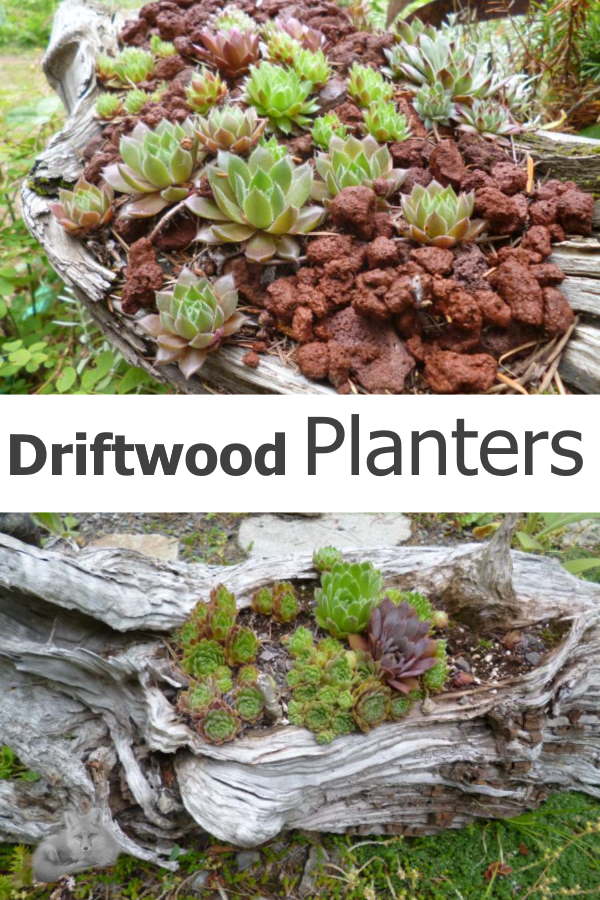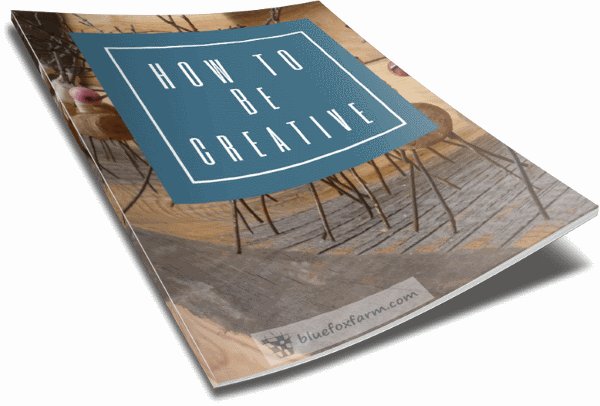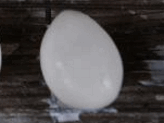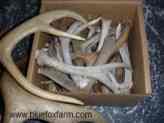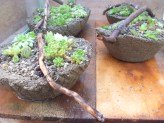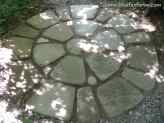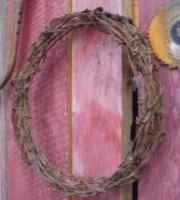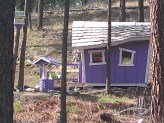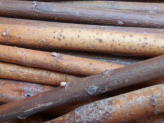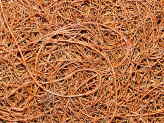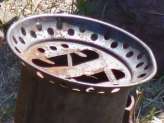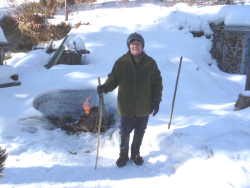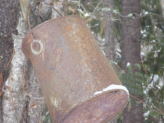Driftwood Planters
Twisty, Tortured Roots or Weathered Stumps
Driftwood gathered from beaches on the ocean sometimes yields some incredible finds.
Ocean currents and tides can move roots from far away inlets and fjords and deposit them on islands to be found on beach combing expeditions.
If you’re like me, the experience of finding wildly contorted roots to use for garden sculptures and decoration will open your eyes to the possibilities everywhere.
If you’re lucky enough to be able to beachcomb some isolated beaches, you’ll be in the position to find many such pieces for driftwood planters and take home a memento that will trigger memories every time you see it in your garden.
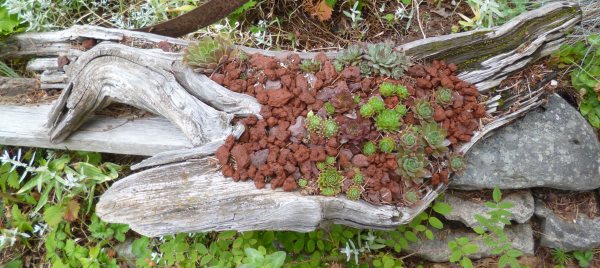
Other great places to find driftwood are on riverbanks, especially once the spring freshet has gone down, and also on the shores of lakes – particularly larger ones with predominant winds from one direction.
This makes it much easier to locate an abundance of great pieces to choose from as they all end up in one area.
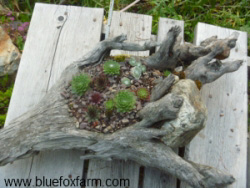 Twisty, Tortured Root Planter when first planted... Twisty, Tortured Root Planter when first planted... |
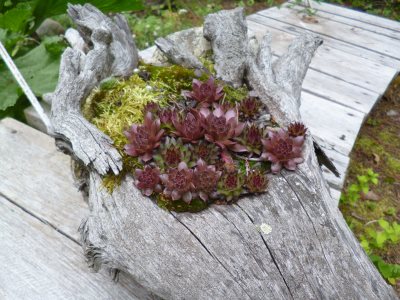 The red Sempervivum have done the best, in these challenging conditions The red Sempervivum have done the best, in these challenging conditions |
After winter storms is a good time to look on ocean beaches, especially after a particularly high tide.
This places the driftwood conveniently close to access with a vehicle, and also prevents it from being carried away by the next tide.
The limiting factor in all driftwood gathering expeditions is usually size.
How many times have you seen a gorgeous piece that would be perfect, but it’s too big?
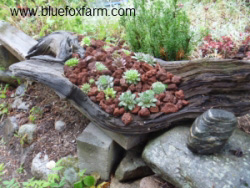 Driftwood from the river is perfect as a planter Driftwood from the river is perfect as a planter |
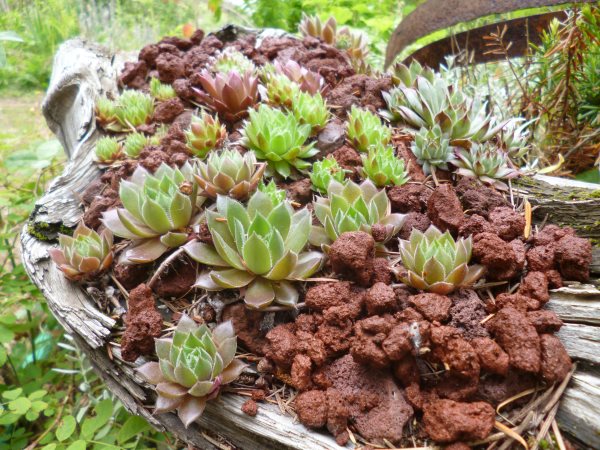 Three years of benign neglect later, this is what the planter looks like... Three years of benign neglect later, this is what the planter looks like... |
Sadly, carrying a saw to your beachcombing forays would be useless, as once you cut into a piece of driftwood and expose the unweathered wood the piece loses all value. The patina of the wood is all important.
For the best driftwood planters, it’s best to look for those pieces of driftwood that have convenient hollows already, or a flatter shape that will lend itself to being planted with succulents like Sempervivum.
It's important not to get too ambitious and try to grab a piece that's too big - it may be impressive, but will it go in your car?
I try and envision the depth of the planting area, and if it’s more than a 4-6cm (2-3") it goes with me.
Keep in mind that the bottom of the piece may not be flat, so you'll have to prop it up on rocks or other pieces of wood to level it and allow the plants to grow, and the soil not to slump out.
You may already have the perfect candidate for planting with some of my favorite hardy succulent plants - check in your garden for a piece of driftwood that you’ve collected and never found a use for – you may be pleasantly surprised to find a new life for it as a driftwood planter.
Learn what it takes to be creative - we all have the gene but how do we develop it? Get the free guide!
Fill in the form below for your copy;
(Don't be disappointed - use an email address that will accept the free download - some .aol email addresses won't.
If you don't see your download within a few minutes, try again with another email address - sorry for the bother.)
